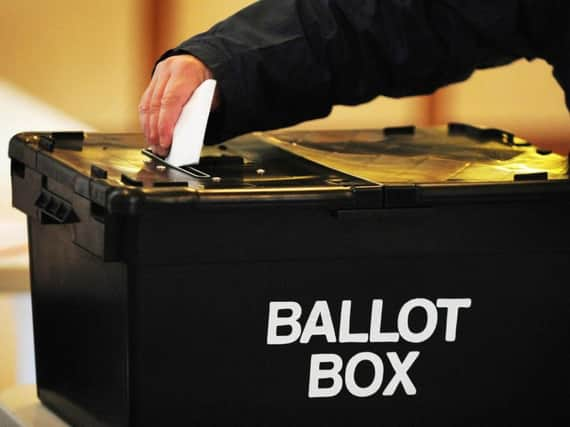What does the General Election mean for firms - comment


That’s a lot of elections and, more importantly, a lot of public money. The two questions we get asked constantly at the moment is how much is all this costing us and – more importantly – how do we prepare to engage with new Westminster MPs?
Costs first – a UK-wide General Election costs around £140 million. Just over £98m was spent on fees for returning officers and their teams, who oversee the count at a local level, with £42.5m on delivering “statutory” election literature.
Advertisement
Hide AdAdvertisement
Hide AdThat’s the ones that say election communication and are delivered free – one per party per seat – though the political parties pay for the design and printing.
Add into that the amounts spent by each party and the numbers really begin to rocket. The two most marginal seats in the UK are both in Scotland. North East Fife had an SNP majority of just two over the Lib Dems and Perth and North Perthshire saw veteran nationalist Pete Wishart scrape back with 21 votes to spare over his Tory opponent.
Voters in seats like those and, in fact, any marginal (a seat with a majority under 3,000) or super marginal (under 1,000) can expect a blizzard of literature, letters, mini magazines that try hard not to look like election leaflets, and targeted online advertising via Facebook.
Expenditure
Strict limits mean parties are allowed to spend no more than about £14,000 per seat during the six weeks between dissolution and polling day. Not all parties will spend this in every seat but with 150 seats likely to change hands you can guarantee the leading two parties will be spending pretty close to that £14k limit – adding another £4 million to the election budget.
Then there is the famous deposit, a fee paid to the relevant local authority to help offset some of the admin costs. All candidates must pay it – £500 – but if they gain 5 per cent of the votes cast, the deposit is returned. A local Indian restaurant once stood a notional candidate against Tony Blair and reckoned the £500 was the best advertising money ever spent!
But how to engage with our new crop of MPs? Opinion polls suggest as many as two dozen Scottish seats will change hands. That’s a lot of new names to get to know. Our hunch is that most of the Tories’ 13 seats will revert to the SNP as will a few of the seven Labour seats.
The Lib Dems will probably regain North East Fife. What will be highly significant, however, is if the UK Lib Dem total of MPs exceeds that of the SNP. The third-placed UK party has much greater speaking rights in debates, more select committee clout, and a guaranteed slot at Prime Minister’s Questions.
Closer to home, we recommend five steps for Scottish firms used to, or planning to deal with, politicians at Westminster:
Advertisement
Hide AdAdvertisement
Hide Ad1. By lunchtime on Friday 13 December you will know who your new MP is. If you know him/her send an old-fashioned letter of congratulations saying you look forward to continuing to work with them in the coming months. Parliamentary emails will not be operational for another week or so.
2. If it is a new MP, send a similar letter but appropriately worded. Keep it politically neutral and stress a good working relationship with your business in their new constituency (include key employment facts and figures).
3. If you didn’t know the former MP and even if he/she is returned, an amended letter of congrats with a specific invite to visit “in the New Year”. Mention employee numbers and, if possible, value to the local economy.
4. If you work outside Scotland, send a letter of welcome to the new or returning UK Minister. The Cabinet will be appointed on Friday/Saturday unless it is a (very) hung parliament. Junior appointments will be the following week.
5. Follow up either 1, 2 or 3 and 4 – but leave to the New Year. If in doubt, give us a ring!
Devin Scobie is public affairs director with Perceptive Communicators and a former Westminster parliamentary candidate.